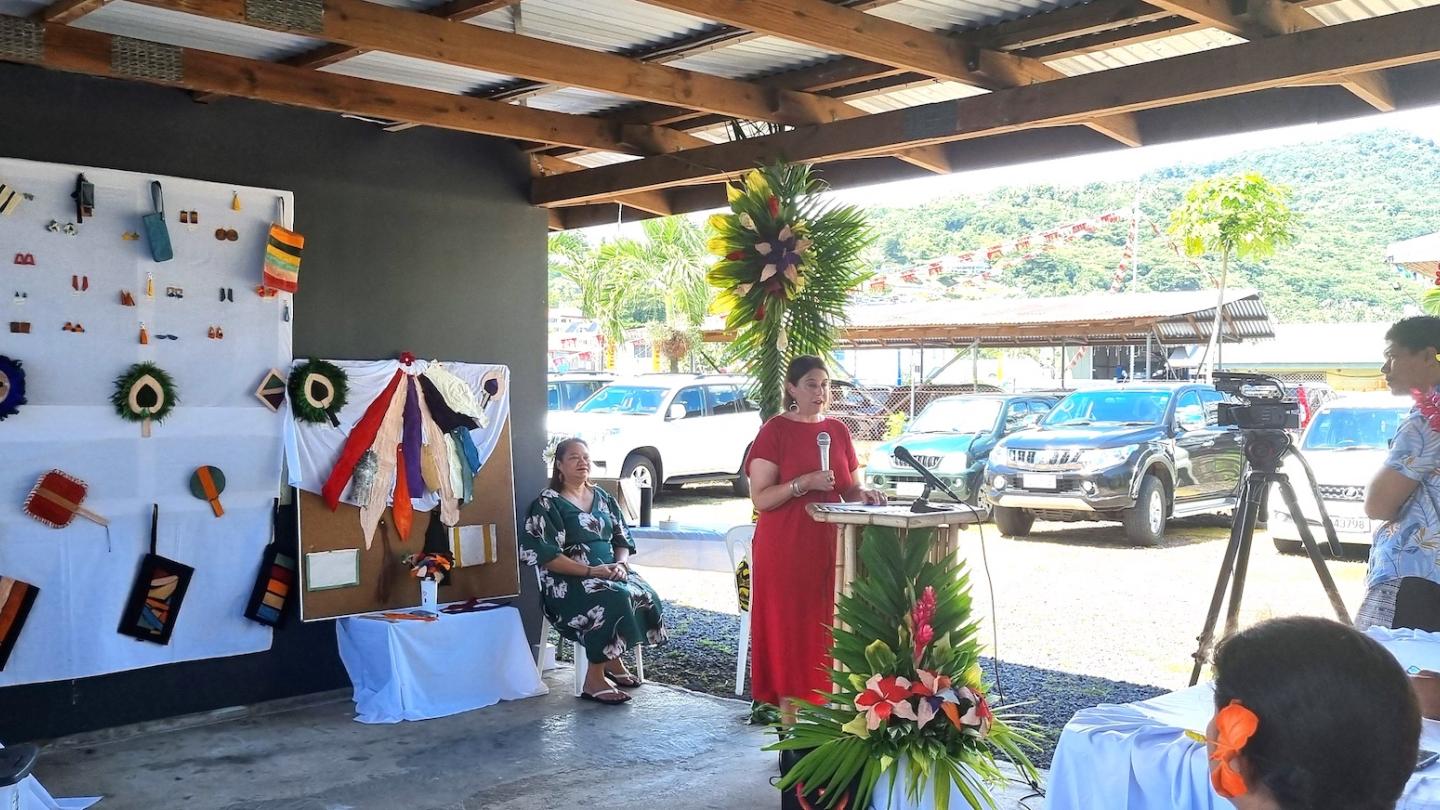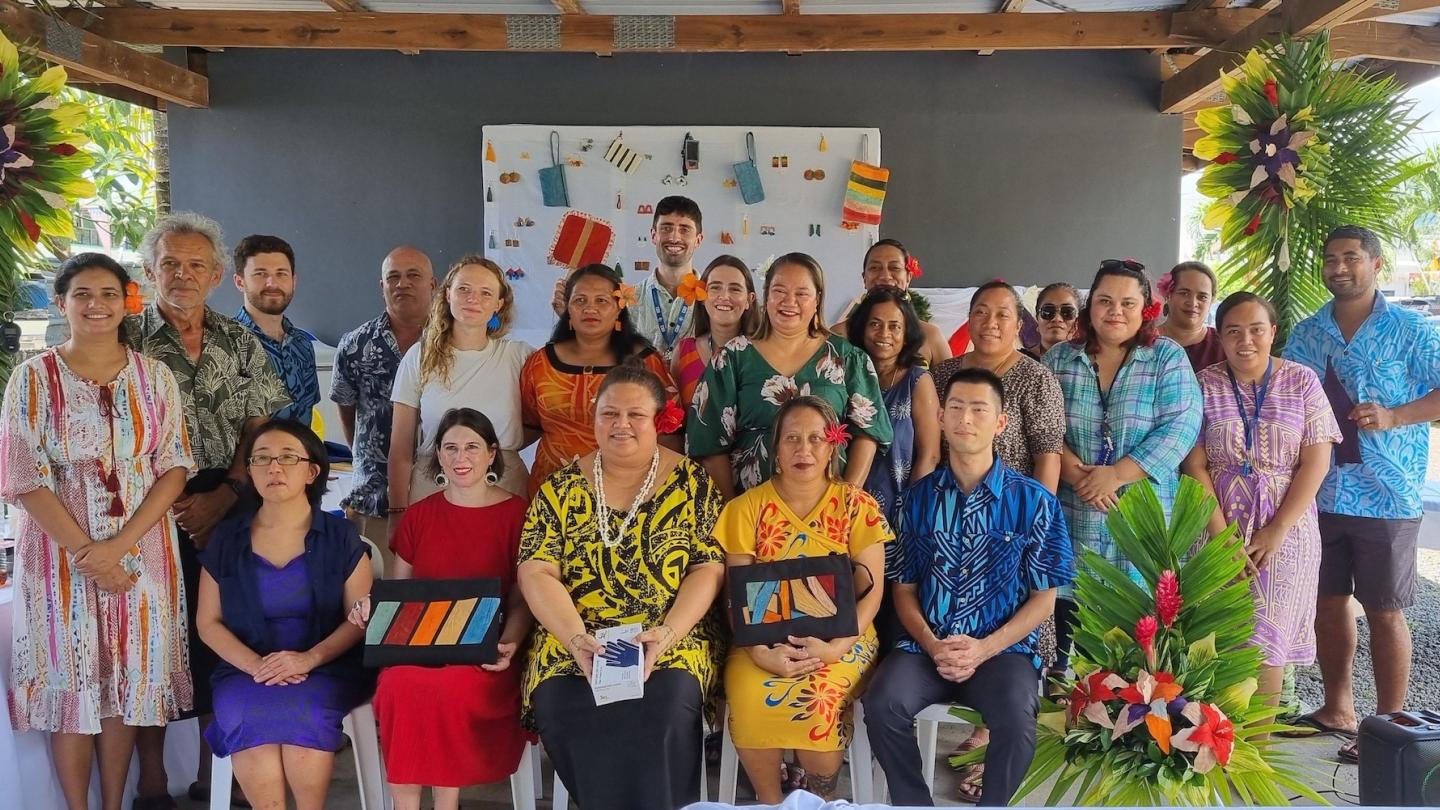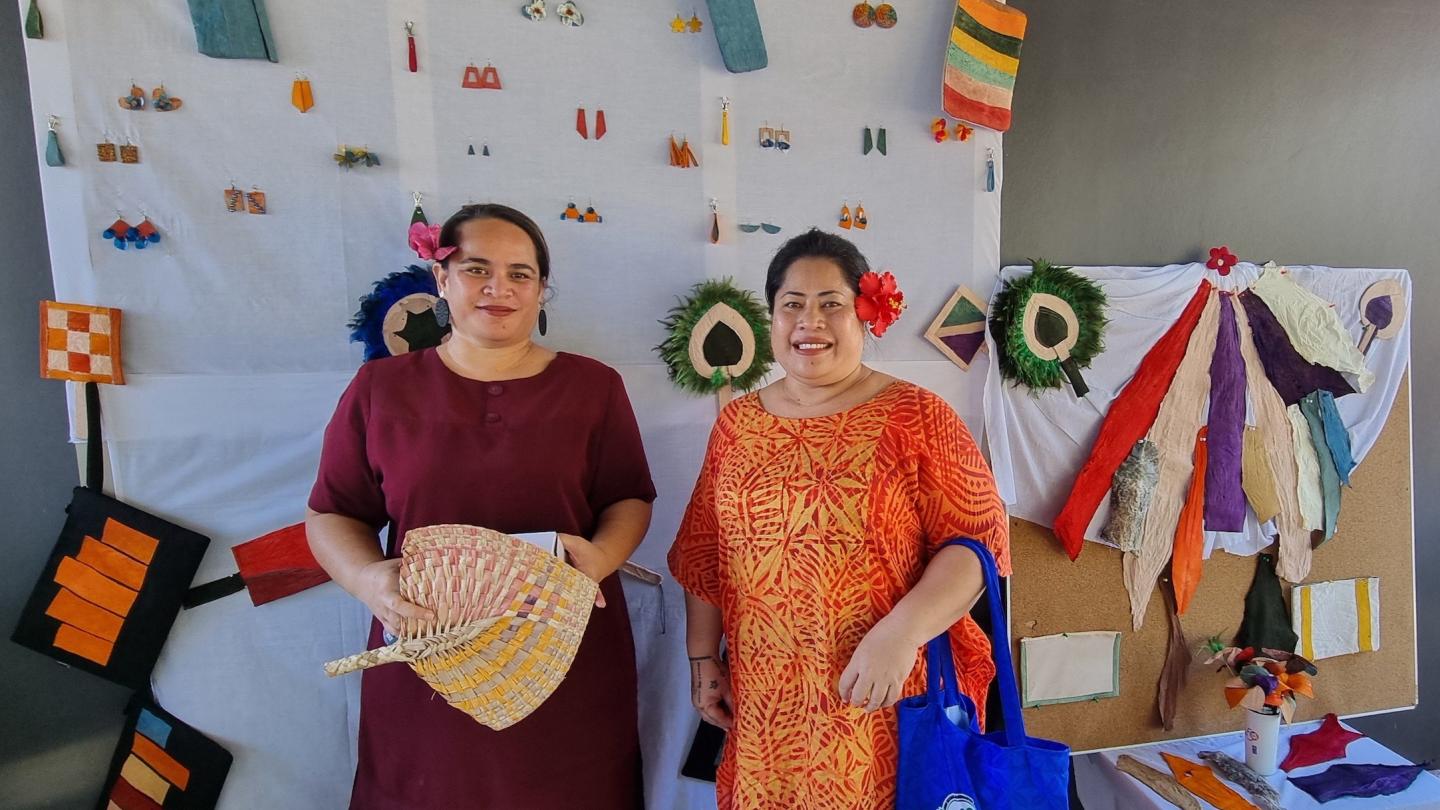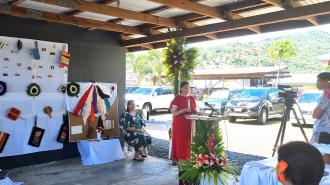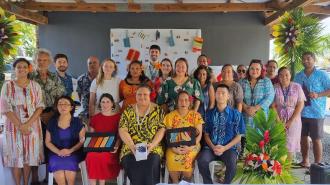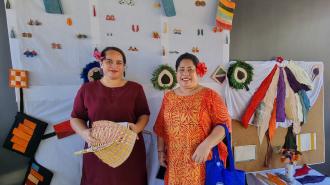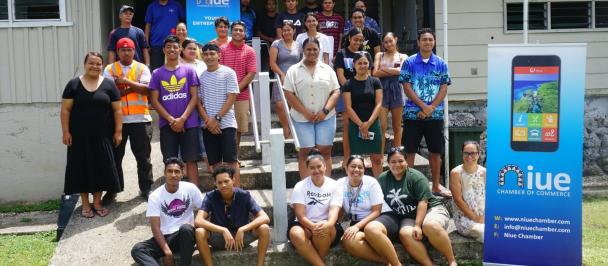Innovative experiment converts discarded fish skin into sustainable leather products
March 22, 2024
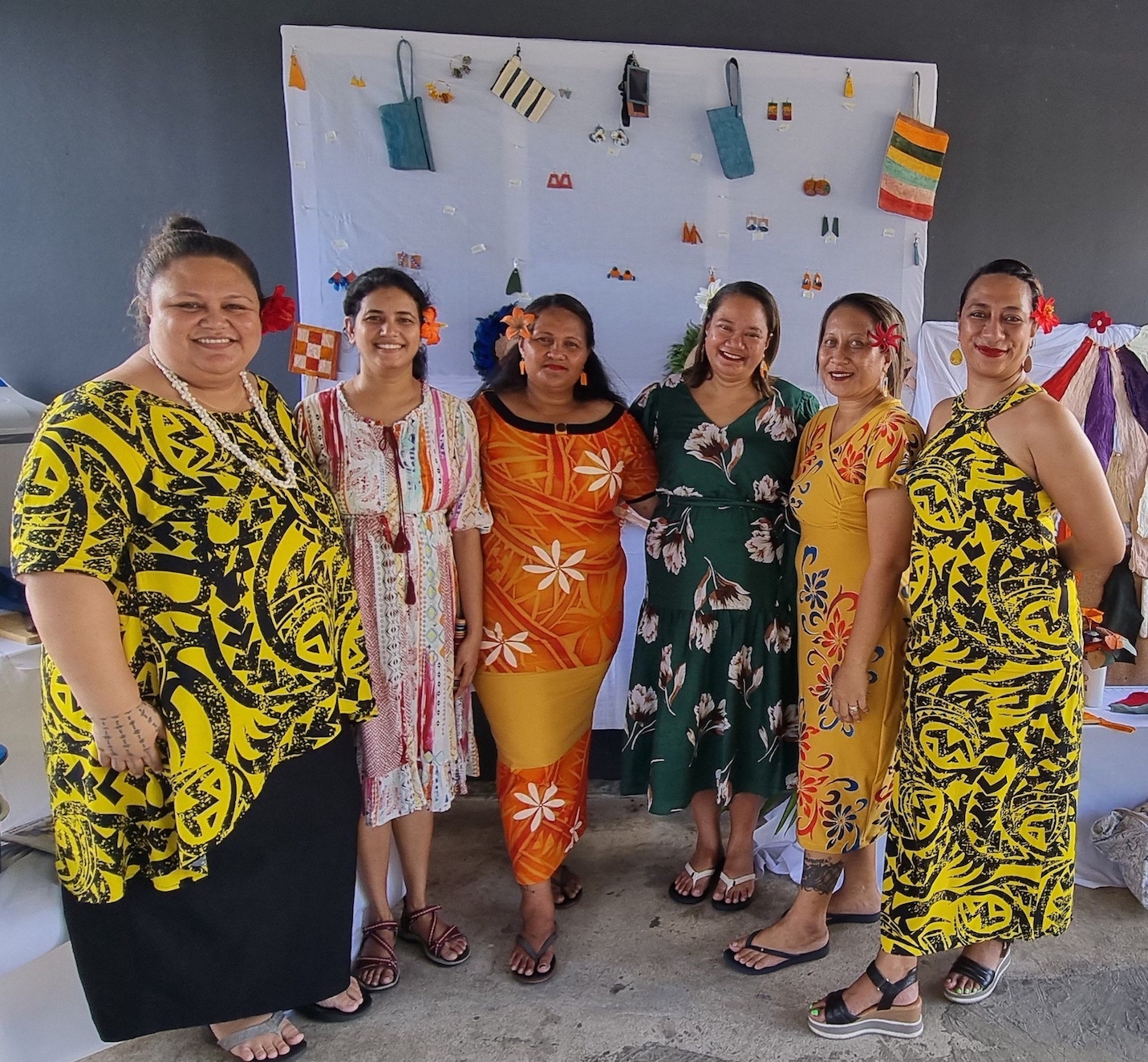
The UNDP AccLab team with This n That owner, Agnes Fruean (far left), with Pragya Mishra, Ane Lesa, Mataao Maria Bernard, Viena Siasi & Taimalelagi Kaisarina Salesa
Apia, Samoa – An innovative experiment, known as the 100% Fish Use project, that successfully tested the conversion of discarded fish skin into sustainable fish leather and leather products, was showcased today by the United Nations Development Programme (UNDP), at the ‘fish hub’ at Taufusi.
This initiative addresses critical environmental and economic challenges faced by Pacific island countries like Samoa. The vast oceanic resources surrounding Samoa make fish a vital source of food and economic security, but threats such as climate change, pollution, and overfishing endanger ocean ecosystems and livelihoods. In response, UNDP continues to support the Government of Samoa and its people to balance ocean conservation with community needs.
The Accelerator Lab (AccLab), UNDP’s in-house innovation engine, proposed innovative solutions to diversify ocean-dependent livelihoods and aid in ocean conservation. Recognized for its potential impact, AccLab Samoa won the 2023 Japan SDG Challenge, supported by the Cabinet Office of Japan.
Partnering with Think Sea Corp (Tototo), a Japanese company specializing in fish leather production, AccLab Samoa conducted experiments to transform locally available fish skin into high-quality leather. Two master trainers, Ane Lesa and Viena Siaosi, from the Samoa National Youth Council, were trained in the low-cost leather production process, empowering them to promote entrepreneurship within their communities.
“Experimenting on the fish leather process yielded many lessons and insights. As a low-cost, low-tech solution, we proved that it clearly can be adopted at household or community level. The novelty of fish leather adds a new dimension to the made-in-Samoa handicrafts market. Fish leather is popular overseas and could be a potential new export commodity here,” said Verena Linneweber, UNDP Deputy Resident Representative.
Local entrepreneur, Agnes Fruean of This n That, and owner of the Tavai brand, has already trialed this process, with much success. She has added fish leather to her range of bags.
“This is definitely a viable venture for local entrepreneurs. You just need a bit of capital at the beginning, but once you get going, there is definitely a lot of potential. This is a premium product for the global market. Locally, this will start off as a niche market, but it will certainly grow. Probably 99.8% of the required materials can be sourced in country. It’s a lengthy process, but it’s not difficult at all. This will be ideal for youth entrepreneurs or women in the villages as another source of income for their families,” said Ms. Fruean.
UNDP's experimentation approach facilitates insights into cultural uptake, viability, and feasibility, identifying challenges and opportunities for improvement. Lessons learned include the potential for widespread adoption at the household or community level, enhancing Samoa's handicraft sector and potentially opening new export markets. Challenges like processing agent availability and fish waste seasonality require further consideration.
While the Japan SDG Innovation Challenge concludes, UNDP looks forward to incubating this idea within its circular economy portfolio. The documented fish leather making process will be shared with interested parties, inviting collaboration to refine and expand this innovative solution.
-ENDS-
For more information on this initiative and opportunities for collaboration, please contact the Samoa AccLab team: acclab.ws@undp.org
For media queries, please contact:
Laufaleaina Lesa, UNDP Multi Country Office, Samoa|Tel, +685 23670 | E: laufaleaina.lesa@undp.org
www.ws.undp.org | @UNDP in Samoa, Cook Islands, Tokelau & Niue | @undpsamoa

 Locations
Locations